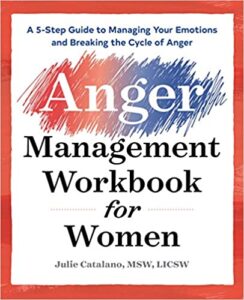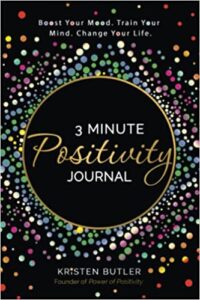Years ago, I was hosting a dinner party at my house for some close friends. During dinner, I got into a serious conversation with my dinner partner. Specifically, it was about the challenges I’d been dealing with around the services (or lack of services) the school district was providing our daughter, Kelly, who had a variety of learning challenges stemming from autism.
The more I talked about it with him, the more worked up I found myself. Eventually, words erupted from my mouth that I couldn’t control, swear words that weren’t pretty. Though those words had a good intention, serving to release my pent-up frustration, the anger they represented was met with disbelief.
Maybe you can relate. For example, say you’re cooking dinner and making a recipe that requires some concentration, and you hit your elbow on a sharp corner of a cabinet, and it vibrates pain down your arm. The immediate response to the pain is to want to scream or swear. Letting out the scream is not just for the pain of the moment; it’s also for the pain of all the repressed feelings you’d been hanging on to.
While you may feel guilty or judged for a passive aggressive explosion, it’s merely a sign of repressed anger that needs releasing.
We all do it.
Dealing with Anger and Emotional Pain

Though autism presents some very serious challenges, I think we’ve all had those unexpected moments where we wanted to scream, but for the sake of another, we kept the anger inside. After all, our society tends to frown on anger as if it’s an ill-expressed will.
The challenge for me was that parenting a child with autism taught me to repress my anger and subdue my emotional pain. That’s because, with autism, there is an inability to understand the complicated world of facial expressions. In addition, sensory processing issues are a big deal, making yelling or loud noises very disturbing to the individual with autism. So for the sake of my daughter, I learned to suck in my emotional pain, which actually became more and more comfortable as time went on.
Through this calm approach to parenting, I adopted a more peaceful inner state. People often commented on my stoic nature. At the time, I thought it was a compliment. I didn’t realize that I was numbing out, not allowing myself to feel or express my emotional pain. And those emotions were bottled up inside.
Putting on a Happy Face
When you think about it, it makes a lot of sense because, for most of us, anger doesn’t feel good; it makes our hearts race and our stomachs flip. It also brings about feelings of fear and anxiety, around either our own anger or someone else’s. So if there is a feeling brewing inside that feels uncomfortable, we try to get rid of it. The overwhelming urge to bury our anger—or to let it erupt in intense rage—is both unhealthy. To avoid pain, we instinctively seek positive emotions and experiences.
Even when we don’t feel it or know it’s there, unprocessed anger also wreaks havoc on our health. It manifests in our body in many forms, like constipation, chronic neck pain, tightness or cracking in the jaw, stomach ulcers, compulsive or addictive habits, passive-aggressive behavior, back pain, and muscular tension.
Another interesting way of coping with our anger is to project it onto our partner, family member, or friend. In other words, we see them as angry when we are really trying to dodge our own anger. Our upbringing teaches us that anger is a negative, out-of-control emotion. But anger simply stems from a feeling of being disempowered. It actually serves a very important purpose. Anger is meant to make us uncomfortable because it has a message for us; it’s trying to get our attention.
To access the wisdom of our emotions, we have to learn to accept the discomfort that comes with them. Without discomfort, there is no change or growth. To be afraid of our emotions, particularly anger, is to stay stuck.
Here are some of the ways anger can be helpful:
Anger propels us into positive action. When we acknowledge why we are angry, it opens up space to approach a solution or advocate for a cause with passionate force. And that is empowering. My father loved this approach, and he’d push my buttons to get me to move into action!
Anger helps get your needs met. Anger sends a signal to you when you are overburdened or exhausted to ask for help.

Anger motivates you to create necessary boundaries around self-care and communicating your needs. This is a big one for me. I tend to get passive-aggressive in the kitchen when it comes time to do the dishes. My husband will say, “I’ll do them later.” And it drives me crazy because he often forgets or waits until the morning. But I hate waking up to a sink full of dirty dishes. So I end up doing them myself; in fact, I often do many of them before we even sit down for dinner. To alleviate my inner turmoil, a system where everyone chips in regularly might be a good idea. What do you think?!?!
Anger strengthens relationships. Communicating our feelings is the most essential aspect of getting our needs met in any relationship. If you keep your desires or opinions inside for fear of being judged harshly by your partner, perhaps it’s time to rethink the relationship. Working through things together, compromising, and being open to seeing another’s perspective can only happen when we work through our anger or no longer fear it.
Anger gives us insight into ourselves. If we can step outside ourselves and notice when we get angry and why, then we get clues into how to improve our lives. Anger reveals our blind spots and motivates self-change.
So what do we do when anger makes us feel crazy or unable to calm down?

Don’t dismiss it. But you also don’t want it to take control over you. Breathe deeply. Get out of your head and into your heart. Only when your heart is open will you be able to open up to a new perspective.
To release anger, acknowledge it, and explore it with curiosity. Allow yourself to be present with the feeling without judgment. Journaling regularly is one of the best tools for monitoring emotions. The concept of Morning Pages by Julia Cameron is a fabulous tool for regularly acknowledging your emotional state and releasing feelings of anger, resentment, frustration, guilt, jealousy, or whatever it might be that’s stewing inside of you.
The Emotional Freedom Technique (EFT) is another fabulous way to work through anxiety, anger, or any emotional pain. Like journaling, EFT works well when used regularly to purge unwanted emotions and bring our inner state closer to a place of peace. There are EFT practitioners to guide you through this process.
Even when anger is justified, no matter what the cause, we still always have a choice on how we want to release it and communicate to spark positive change for both ourselves and others.


Read Next:
20 Journaling Prompts for Mental Health







